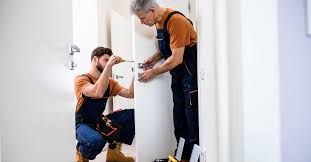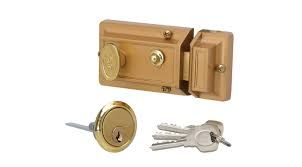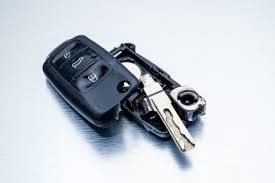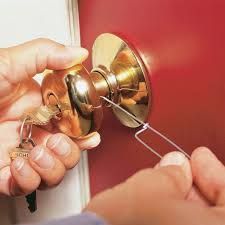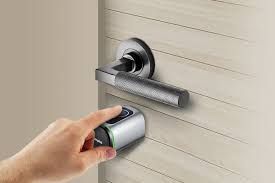Lost Keys? Everything You Need to Know If You Lose Your Keys
Every year, the average person spends about 36 hours looking for items that they’ve lost. From remote controls and cell phones to eyeglasses and shoes, people lose all kinds of things throughout the course of a year.
This includes their car keys and their house keys. It’s not uncommon at all for people to misplace their keys and struggle to find them.
If you ever lose your keys, it might send you into a panic right away. You’re going to wonder where in the world your lost keys could be and be tempted to lose your cool while you’re looking for them.
Rather than doing this, you should take a slightly different approach to dealing with things when you lose your keys. You won’t have to worry about being locked out of your car or your house for too long as long as you take the right steps.
Here is everything you need to know if you lose your keys.
Rack Your Brain to See If You Can Remember Where You Had Your Lost Keys Last
When you first realize that you’ve lost your keys, you’re going to have a tough time keeping it together. Your brain is going to be moving a million miles a minute, which is going to make it challenging to remember where you might have put your keys.
You should try to take a few deep breaths to calm yourself down. This should help you to think a little clearer so that you can try to remember where you might have lost your keys at.
As we alluded to a few moments ago, people lose their keys all the time. And more often than not, they’re able to find them eventually after spending some time looking around for them.
You’ll want to look all over the place when you lose your keys. Some of the most common places where people end up finding their lost keys are:
- In the ignition for their car or in the front door for their house
- In their refrigerator
- In between their car seats
- In one of their coat pockets
- Near toilets and urinals
- Behind woodpiles
Believe it or not, there have even been instances in which pets have gotten a hold of keys and eaten them. If you suspect that your pet may be to blame for your lost keys, you shouldn’t be shy about inspecting them for any signs that will show that they have ingested your keys.
Think About Whether or Not You Might Have a Spare Set of Keys Somewhere
With a little bit of luck—and a whole lot of patience—you should be able to find your keys shortly after losing them. But if you’re not able to do it no matter how hard you look, that’s when you might start to unravel.
Instead of doing this, you should give some thought to whether or not you might have a spare set of keys somewhere. You’re probably not going to have a spare key for every key that you keep on your keyring. But most people have a spare car key and a spare house key that they keep in a safe place.
If you have a spare set of keys, now is going to be the perfect time to pull it out. You’ll be able to continue using your car and/or accessing your home without having to call on one of the local locksmith services right away. It’ll lift the weight of the world off your shoulders and make life a little less stressful for you.
Call On a Family Member to Come and Unlock Your Car or House for You
In addition to thinking about whether or not you yourself have a spare set of keys when you lose your keys, you should also give some thought to if one of your family members might be able to bring you a spare key.
Oftentimes, people will give one of their family members a spare key to their car. They’ll also have other people who live with them that have a key to their house.
If you happen to have a family member who can bring you a spare key for your car or house, you’re going to be in luck. You won’t have to sit outside of your car or house locked out for hours on end without any way of getting back into it. It would be worth checking in with your family members so that you can tell them about the situation you’re in.
Touch Base With One of Your Local Locksmith Services to Get Back Into Your Car or House
If you lose your keys and you can’t think of any possible way to track down a spare key for your car or house, you might think you’re completely out of luck. But this couldn’t be further from the truth!
The great news for anyone that has lost keys is that you can always call on one of your local locksmith services for assistance when you need it. There are more than 26,000 locksmith services in the U.S. today, and they exist to help those who have lost keys and found themselves locked out of cars and homes.
You should Google “locksmith services near me” when you lose your keys and do some quick research on the options that you have in your city or town. You should attempt to find a reputable locksmith in your specific area that can come out to your location as soon as possible to help you.
Most locksmith services will be able to send someone to your location within just an hour or two, regardless of what time of the day or night it is. They’ll make a bad situation a whole lot better and help you avoid being locked out of your car or house for too long.
Ask a Locksmith to Create a New Key for Your Car or House
In some cases, you aren’t going to need to have a locksmith create a replacement key or a set of replacement keys for you after you lose your keys. You’ll be able to find your keys once you get back into a locked car or house.
But in other instances, you won’t be so lucky. You’ll have to create a new key for your car or house and have any other keys that were on your keyring replaced, too. Fortunately, this is another area in which locksmith services can help you out.
A good locksmith should be able to do more than just get you back into your car or house. They should also be able to set you up with key replacement services so that you don’t find yourself back in a similar situation in the near future.
Make Sure You Have a Spare Set of Keys Made for the Future
Whether you’re able to retrieve your lost keys once regaining access to your car or home or not, you should strongly consider having a spare set of keys made by a locksmith service while you have them. The last thing that you want to do is lose your keys again sometime down the road and find yourself right back where you are now.
A locksmith service can stop you from getting yourself back into this situation by creating a set of spare keys for your car and house. This way, you can simply go and get these keys if you’re ever locked out of your car or house again.
It won’t take a good locksmith service very long to create a spare set of car keys or house keys for you. They should be able to do it in a matter of just a few minutes, especially if you’re able to find your lost keys. It’ll be well worth the money that you’ll pay to have spare keys created.
Consider Changing the Locks in Your Car or House If You Think It’s Necessary
If you lose your keys and they don’t ever turn up again, this could potentially be a big problem for you. There is a chance that those keys might fall into the wrong hands, and if they do, someone could break into your car or house without a problem.
If you’re worried about this happening to you, you might want to go as far as to talk to a locksmith service about changing the locks in your car or house. They can remove your old locks and put new ones into their place so that you don’t have to be concerned about anyone using your old keys.
This is going to require a little bit more effort on the part of a locksmith service. It’s going to take some time for them to take out your old locks so that they can replace them with new ones.
But your new locks will give you a better sense of security. You might even want to go as far as to install some smart locks in your home if you’re going to go about replacing your old locks. They’ll make it easier for you to get in and out of your home, and they’ll ensure that no one else is able to access your home.
Do What You Can to Avoid Losing Your Keys Again Anytime Soon
When you really think about it, it makes all the sense in the world why people lose their keys so often. They’re constantly walking around inside their homes and out in the world with them loosely in their hands. It’s only a matter of time before you lose your keys as a result of it!
But you should know that there are some things that you can do to avoid losing your keys anytime soon. You should do all of them to cut down on the chances of you misplacing your keys and not being able to find them.
Here are several things you should consider doing to steer clear of losing your keys at any point:
- Put your car keys and your house keys onto the same keyring
- Keep your car keys and your house keys in the same place in your home at all times
- Stick a Bluetooth tracker on your car keys and house keys so that you can find them easily if they ever go missing
- Place your car keys and house keys in a safe spot in your pocket or pocketbook when you’re out and about
- Always have a spare set of keys handy just in case you get locked out of your car or house
You’re going to lose your keys every now and then, even if you make it a point not to. But by taking some of the precautions that we just talked about, you should be cut way down on how often you can’t find your keys.
Give Us a Call Right Away If You Ever Lose Your Keys and Need Help
If you ever lose your keys, your first instinct might be to panic. And it would be hard to blame you for doing it!
Without your keys, you won’t be able to start your car. You also won’t be able to walk through the front door of your house.
But not to worry: You don’t need to freak out just because you’ve lost your keys. You can have a locksmith come out to help you make the most of a bad situation.
We would love to send one of our locksmiths out to your car or home to provide you with locksmith services the next time you need them. We promise to show up fast and to assist you in either getting your keys back or creating new keys for you.
Would you like to take advantage of the locksmith services that we have to offer? Contact us today to request service.
Call Us Any Time!
